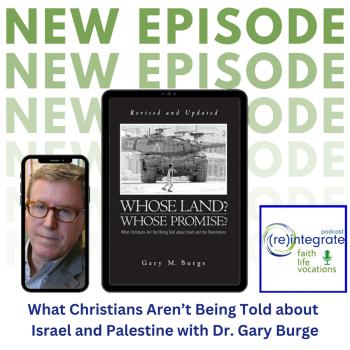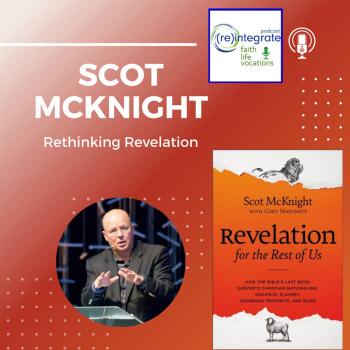William Carey, in the 19th century, defined Christian mission by interpreting the “Great Commission” (“go and make disciples”)[1] as primarily the geographic expansion of Christianity by means of making converts through evangelism. This paradigm influenced generations of evangelicals throughout the 20th Century.
“Protestants who used the Great Commission as their foundation for mission assumed the following: that salvation was individualistic; that salvation had to do primarily with a spiritual and personal relationship with Jesus Christ; that the primary calling of the church’s mission was geographic: Christians were called to ‘go’; that the ‘going’ was primarily from the west and north of the globe to the east and south…”[2]
This paradigm is still widely accepted in the much of the evangelical camp today.
However,
“In the Greek, ‘go’—like ‘baptizing’ and ‘teaching’—is a participle. Only the verb ‘make disciples’ is imperative… The main emphasis, then, is on the command to ‘make disciples.’”[3]
While most evangelical commentators on Matthew believe that these three participles do, in some way, also carry an imperatival component,[4] it remains that the central command is to “make disciples.”
To Make Students of Jesus
However, contrary to the assumption of William Carey and those he has influenced, “the word ‘disciple’ means above all ‘learner’ or ‘pupil.’ The emphasis in the commission thus falls not on the initial proclamation of the gospel but more on the arduous task of nurturing into the experience of discipleship, an emphasis that is strengthened and explained by the instruction ‘teaching them to keep all that I have commanded’ in v 20a.”[5]
[framed_box width=”255px” bgColor=”rgba(210,207,246,1)” borderColor=”#0f1767″ borderThickness=”2″ rounded=”true” align=”right”]The Great Commission is to “make disciples.” This does not simply mean “make converts;” it means “make students.”[/framed_box] “To disciple a person to Christ is to bring him into the relation of pupil to teacher, ‘taking his yoke’ of authoritative instruction (11:29), accepting what he says as true because he says it, and submitting to his requirements as right because he makes them.”[6] Therefore, the Great Commission is to “make disciples.” This does not simply mean “make converts;” it means “make students.” Certainly, the former is important in that without conversion, a person cannot become a pupil of the Master, but it is simply incorrect to truncate the definition of “make disciples” into “make new converts.”
The Mission of Both Evangelism and Deep Discipleship
In his commentary on Matthew, Grant Osborne writes,
“Jesus mandates that all mission activity emulate his pattern of discipling followers as exemplified in this gospel. They must be brought to understanding and to that deep ethical commitment patterned in the Sermon on the Mount and the Community Discourse; then they will become ‘trained as disciples of the kingdom.’ (John 13:52).”[7]
The Great Commission is therefore a mission of both evangelism and of deep training in the ways of Jesus Christ. The way of Jesus can be summed up by his statement that he did not come to be served, but to serve.[8]
John Stott (1921-2011), in a book published the year after the Lausanne Committee, wrote that the Great Commission should not be interpreted in such a way that truncates it to just evangelism. In Christian Mission in the Modern World, Stott wrote,
“I confess that I myself argued this at the World Congress on Evangelism in Berlin in 1966… I now see more clearly that not only the consequences of the commission but the actual commission itself must be understood to include social as well as evangelistic responsibility, unless we are to be guilty of distorting the words of Jesus.”[9]
Ralph Winter, the founder and longtime director of the U.S. Center for World Mission, agrees with Stott. He wrote,
“Looking closely at Matt 28:20, it isn’t just the teachings that Jesus commissions His disciples to pass on; it is the actual enforcing, so to speak, of obedience to those teachings… Such breadth must not be seen to be a divergence from the preaching of eternal life but rather an empowerment of the message of a gospel of a kingdom, which is both here and hereafter. This is the gospel of Jesus Christ. It is the gospel of the kingdom, the announcement of a rule and reign of God that must be extended over the whole world and all of creation.”[10]
[1] Matthew 28:18-20
[2] Charles Van Engen, “‘Mission’ Defined and Described,” in MissionShift: Global Mission Issues in the Third Millennium, ed. David Hesselgrave and Ed Stetzer (B&H Academic, 2010), 15.
[3] D. A. Carson, “Matthew,” in The Expositor’s Bible Commentary : Matthew, Mark, Luke, ed. Frank E. Gaebelein (Grand Rapids: Zondervan, 1984), 595.
[4] Ibid, 595; Grant R. Osborne, Matthew, ed. Clinton E. Arnold (Grand Rapids, Mich.: Zondervan, 2010), 1080; David L. Turner, Matthew (Grand Rapids, Mich.: Baker Academic, 2008), 689; Donald A. Hagner, Word Biblical Commentary, Vol. 33b: Matthew 14-28 (Dallas, Tex.: Thomas Nelson, 1995), 886.
[5] Hagner, Word Biblical Commentary, Vol. 33b: Matthew 14-28, 887.
[6] John A. Broadus, Commentary on the Gospel of Matthew (Philadelphia: The American Baptist Publication Society, 1886), 593.
[7] Osborne, Matthew, 1080.
[8] Mark 10:45.
[9] John Stott, Christian Mission in the Modern World (Downers Grove, Ill: IVP Books, 1975), 23.
[10] Ralph D. Winter, “The Future of Evangelicals in Mission,” in MissionShift: Global Mission Issues in the Third Millennium, ed. David Hesselgrave and Ed Stetzer (Nashville, Tenn: B&H Academic, 2010), 189.
Image by unlistedsightings, used with permission, sourced from Flickr.












